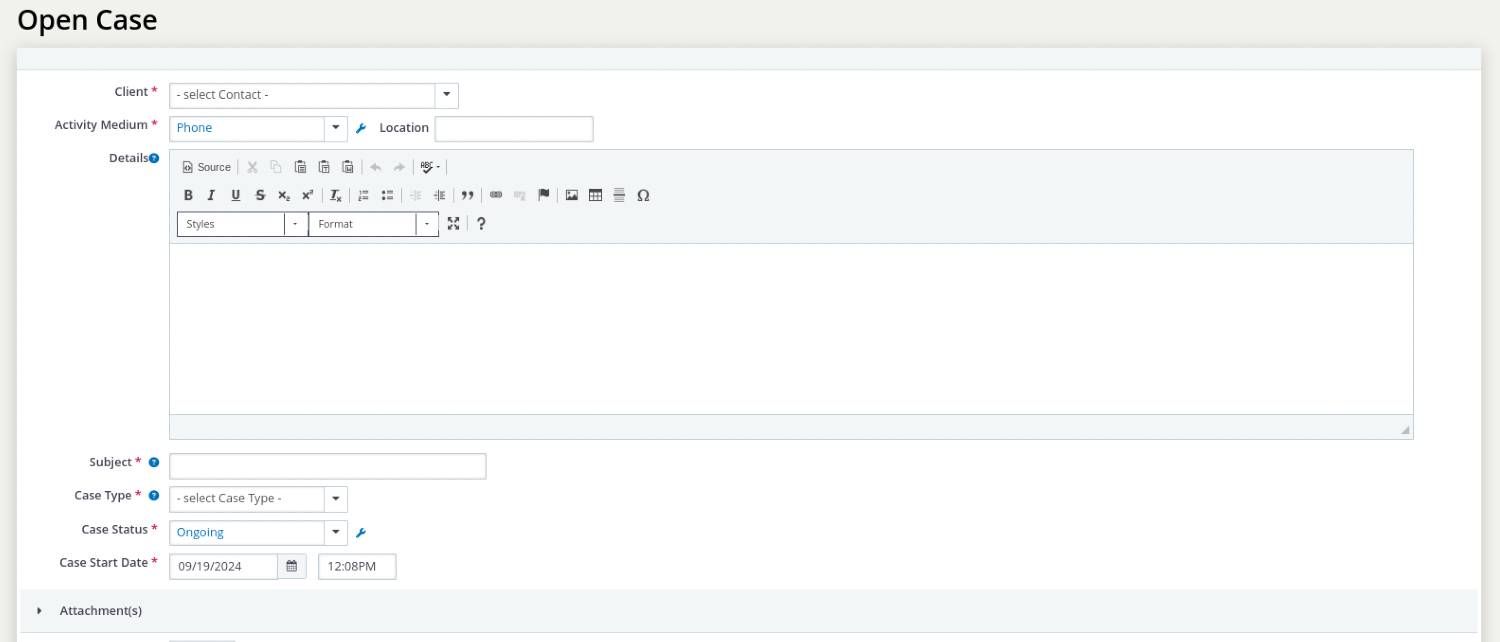Case Management

What is Case Management for Nonprofits
Case management for nonprofits is a process by which a nonprofit organization provides support and assistance to individuals or families in need. The goal of case management is to help individuals or families achieve their goals, whether they be related to health, education, employment, housing, or other areas of life.
Case management typically involves an assessment of the individual’s needs and circumstances, the development of a personalized plan to address those needs, and the provision of ongoing support and monitoring to help the individual achieve their goals.
Nonprofit organizations that provide case management services may work with a wide range of populations, including those experiencing homelessness, those with mental health or substance abuse issues, or those who are low-income or otherwise marginalized. Case managers may provide a variety of services, such as helping clients access healthcare, find housing, enroll in educational programs, or obtain job training and employment.
In addition to providing direct services to clients, nonprofit organizations that offer case management may also work with other community organizations, government agencies, or healthcare providers to coordinate care and ensure that clients receive the support they need to succeed.
Why Should Nonprofits Use CiviCRM and What are the Benefits of Case Management for Nonprofits?
CiviCRM is a powerful and flexible CRM solution designed specifically for nonprofits, providing a wealth of features and tools designed to help manage contact information, donations, events, and more. CiviCRM can help nonprofits manage their constituent relationships, track donations and fundraising, and streamline their service delivery. One of the key features of CiviCRM is its Case Management tool, which allows nonprofits to track and manage interactions with their constituents.
Here are some of the benefits of Case Management for nonprofits:
- Improved Service Delivery: Case Management allows nonprofits to track and manage service requests from their constituents. From custom-built case types and fields, non-profits can guarantee that all requests are addressed in a timely and acceptable way.
- Personalized Experience: By integrating Case Management with other CiviCRM tools, such as Membership Management, nonprofits can provide a more personalized experience to their members. Tracks can be kept on each individual’s case background and membership status, allowing a complete look at their involvement with the organization.
- Performance Metrics Tracking: Case Management enables nonprofits to track performance stats and create reports to review their effect. This helps organizations discover spots for development and enhance their service delivery.
- Customizable Workflows: CiviCRM’s Case Management tool is customizable to fit the specific needs of each organization. Workflows can be customized to match the organization’s existing processes, and cases can be assigned to staff or volunteers.
What is CiviCase?
CiviCase is a tool for tracking and managing sequences of interactions between people in your Organization and contacts in CiviCRM. It’s similar to a case management system. In addition to tracking and managing your Organization’s interactions with clients or constituents, CiviCase can also help you manage internal Organizational interactions.
Additionally, CiviCase integrates with other components of CiviCRM, such as Contacts and Activities, providing a comprehensive view of each case and its relationship to constituents, interactions, and engagements.
Cases are used to track complex interactions or communication processes. A case can be used to:
- Track a specific workflow or set of procedures that must be followed and that involves a number of different Organizational staff: CiviCase allows nonprofits to track specific workflows or procedures that involve multiple steps and different staff members. Organizations can make their own workflows with CiviCase. They link each case to stages, tasks, and activities that need to happen. Employees see the progress of the case, know the subsequent steps, and make sure everyone follows the workflow the same.
- Allow staff to manage and track interactions while avoiding duplication: CiviCase helps staff members efficiently manage and track interactions related to a specific case. Within a case, staff can log activities such as phone calls, emails, meetings, or any other form of communication with constituents or stakeholders. By centralizing this information in CiviCase, staff members can easily view the complete history of interactions and avoid duplication of efforts. This ensures that everyone involved in a case has access to the most up-to-date and relevant information, improving collaboration and decision-making.
- Automate the task of remembering and scheduling follow-up activities: With CiviCase, the task of remembering and scheduling follow-up activities is automated. Staff members can set reminders and notifications within a case to ensure that important actions or deadlines are not missed. For example, they can schedule reminders to follow up with a constituent, complete a task, or meet a specific milestone. These automated reminders help staff stay organized and ensure that cases are effectively managed within the defined timelines. By automating these tasks, CiviCase helps improve productivity and reduces the risk of important activities being overlooked.
Using CiviCRM with case management can be a great way to streamline the management of cases and simplify operations for your nonprofit. If you are looking for a superior CRM system, CiviCRM is certainly worth considering.
